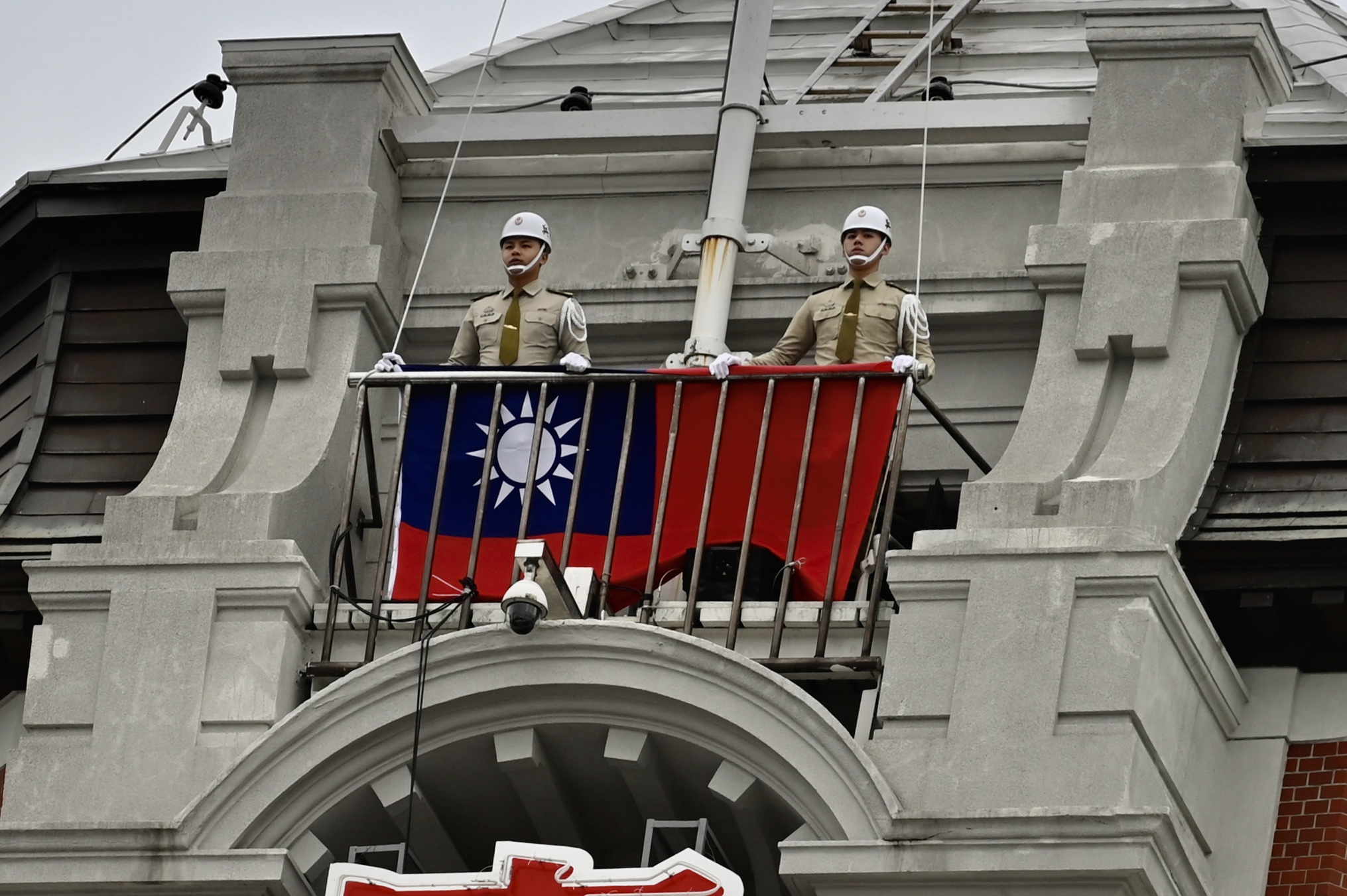China-Taiwan tensions to rise as Trump scraps decades-old rules
Sign up now: Get ST's newsletters delivered to your inbox

The announcement of official US-Taiwan interactions was the latest in a series of moves by the Trump administration to increase ties with Taiwan.
PHOTO: AFP
Follow topic:
BEIJING (BLOOMBERG) - China's state-run media called for retaliation after the Trump administration removed decades-old restrictions on interactions with Taiwan officials just days before President-elect Joe Biden takes office, one of its biggest moves yet to reshape United States ties with Taipei.
The Communist Party-backed Global Times warned that US Secretary of State Michael Pompeo's moves were pushing the world's biggest countries towards conflict.
Mr Hu Xijin, the newspaper's editor-in-chief, said on Weibo that China had a "precious window of opportunity for mainland China to teach a heavy lesson to the 'Taiwan independence' forces" and re-establish "strategic leverage" in the Taiwan Strait.
"While Pompeo tries to cross Beijing's red line on national sovereignty and territorial integrity, he should not expect that China will sit back and do nothing," said a commentary published by the official Xinhua News Agency on Sunday (Jan 10). "Those political clowns will be punished for what they have done to harm China's core interests."
China's Foreign Ministry, which opposes official US-Taiwan interactions, has yet to comment on Mr Pompeo's moves.
It has condemned the trip this week by Ms Kelly Craft, who will become the first US ambassador to the United Nations to visit Taiwan since it was excluded from the global body in 1971, calling her visit "a breach of the one-China principle" and accusing Mr Pompeo of "staging a final show of madness" to "sabotage China-US relations".
The US guidelines on meetings with Taiwanese officials, which are updated periodically, were put in place after its recognition of China in 1979 to distinguish interactions with Taiwan from those with official diplomatic partners.
They required written permission from the State Department for diplomats and military personnel above a certain rank to visit Taiwan, and restricted the venues where meetings with Taiwan representatives could take place.
"For several decades, the State Department has created complex internal restrictions to regulate our diplomats, service members, and other officials' interactions with their Taiwanese counterparts," Mr Pompeo said in a statement last Saturday in Washington. "The United States government took these actions unilaterally, in an attempt to appease the communist regime in Beijing. No more."
The announcement was the latest in a series of moves by the Trump administration to increase ties with Taiwan. Before taking office in January 2017, President Donald Trump accepted a telephone call from Taiwan's President Tsai Ing-wen and said his support for the one-China policy was contingent on getting better trade deals.
Although he later endorsed the policy that has governed US-China ties for decades, Mr Trump increased arms sales and sent the most senior officials in decades to visit Taipei.
"While the implications of the announcement are not yet clear, it seems the intent is to nudge unofficial US-Taiwan relations towards something more akin to official ties," said Professor Maggie Lewis, a law expert at Seton Hall Law School who has written extensively on Taiwan and China.
Taiwan's Minister of Foreign Affairs Joseph Wu said in a tweet that he was grateful to Mr Pompeo for "lifting restrictions unnecessarily limiting our engagements".
"The closer partnership between Taiwan and the US is firmly based on our shared values, common interests and unshakable belief in freedom and democracy," the minister said.
Beijing's one-China principle states that Taiwan and China are part of the same China. While the US recognises that the government of the People's Republic of China is the only legitimate government of China, it only acknowledges that the PRC claims Taiwan is a part of China. Taiwan's government views the island as a de-facto independent, sovereign nation.
"Best case, the Biden administration sees this as a blank slate and starts an internal process to develop what the ideal US-Taiwan engagement structure and process looks like, consistent with the unofficial relationship, shared democratic values and the benefits the bilateral relationship brings," said Mr Drew Thompson, a former US Department of Defence official responsible for Taiwan policy.
The announcement by Mr Pompeo is one of a number the administration has launched or strengthened in the final days of its term, including an initiative to punish companies with close ties to the Chinese military.
He also issued a joint statement last Saturday with the foreign ministers of Britain, Canada and Australia expressing "serious concern" about the arrest of 55 activists and politicians in Hong Kong last week.
Hong Kong's government later rejected that criticism. China has repeatedly said no other nations have the right to interfere in its internal affairs, including in Hong Kong.
National Security Adviser Robert O'Brien said on Sunday that the US was "examining further options to respond".

